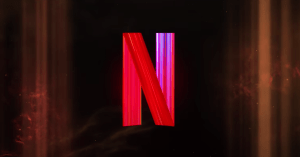On Wednesday, Twitter CEO Jack Dorsey announced that the site will no longer have any political advertisements whatsoever. Dorsey explained in a prolonged thread that “political message reach should be earned not bought,” and why his company had come to that conclusion. With the 2020 presidential election right around the corner in the U.S., many users were floored by this announcement.
Dorsey’s message on Wednesday means that Twitter will no longer let politicians purchase promoted tweet placement. This means that, unless you are following a politician, or someone who retweets them, you will not see what they post on Twitter. Up to this point, many politicians picked strategic messages to “promote” on Twitter, paying to have them appear on certain feeds ahead of others.
Videos by PopCulture.com
According to Dorsey, a political message should “earn” its reach baseed on how many people “decide to follow an account or retweet” it. Giving political campaigns the chance to purchase that exposure “removes that decision” he argues. Dorsey and his team have decided that Twitter should be more of a meritocracy for political ideas.
A political message earns reach when people decide to follow an account or retweet. Paying for reach removes that decision, forcing highly optimized and targeted political messages on people. We believe this decision should not be compromised by money.
— jack 🌍🌏🌎 (@jack) October 30, 2019
“While internet advertising is incredibly powerful and very effective for commercial advertisers, that power brings significant risks to politics, where it can be used to influence votes to affect the lives of millions,” he went on.
Dorsey wrote that political ads on social media facilitate “unchecked misleading information and deep fakes” deployed at a speed and scale that we have never seen before. On top of that, he mentioned that “machine learning,” or artificial intelligence technology, has given these campaigns a new level of “sophistication” that is more dangerous than ever.
It will not just be politicians themselves who are stopped from buying ad space on Twitter. Instead, Dorsey said, any tweet with political content will be banned in the interest of fairness.
For instance, it‘s not credible for us to say: “We’re working hard to stop people from gaming our systems to spread misleading info, buuut if someone pays us to target and force people to see their political ad…well…they can say whatever they want! 😉”
— jack 🌍🌏🌎 (@jack) October 30, 2019
“We considered stopping only candidate ads, but issue ads present a way to circumvent,” he wrote. “Additionally, it isn’t fair for everyone but candidates to buy ads for issues they want to push. So we’re stopping these too.”
Dorsey seemed to call out other social media platforms as well, saying that his site is only “a small part of a much larger political advertising ecosystem.” In another tweet, he noted that these ideas apply to all advertising on social media, not just political content.
“Best to focus our efforts on the root problems, without the additional burden and complexity taking money brings,” he explained.
A final note. This isn’t about free expression. This is about paying for reach. And paying to increase the reach of political speech has significant ramifications that today’s democratic infrastructure may not be prepared to handle. It’s worth stepping back in order to address.
— jack 🌍🌏🌎 (@jack) October 30, 2019
Finally, Dorsey said that there will be some exceptions to this policy, such as ads designed to promote voter registration itself. The full details of the policy will be unveiled on Nov. 15. There is no word yet on when it will go into effect.








